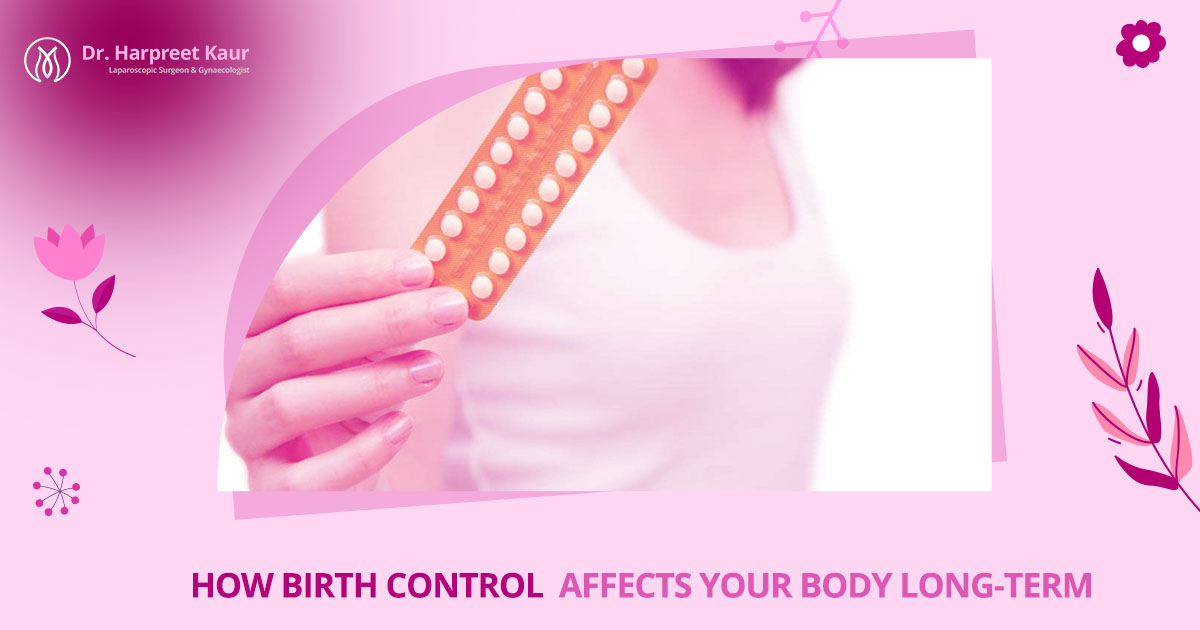Clinic Location
Care n Cure Clinic, Nayapalli, Near Hotel Crown, Bhubaneswar
For Consultation
+91 7008110200
+91 9090910009
Work Hours
Mon - Fri : 05:30 - 07:30
- Home
- About Doctor
- Services
Postnatal care
Gynaecological services
- General Consultatnt
- Adolescent Clinic
- Well Women Clicnic
- Gynaecological Surgeries
- Gallery
- Your Pregnancy
- Training
- Contact
- Feedback
- Blog
- Home
- About Doctor
- Services
Postnatal care
Gynaecological services
- General Consultatnt
- Adolescent Clinic
- Well Women Clicnic
- Gynaecological Surgeries
- Gallery
- Your Pregnancy
- Training
- Contact
- Feedback
- Blog
- Home
- About Doctor
- Services
Postnatal care
Gynaecological services
- General Consultatnt
- Adolescent Clinic
- Well Women Clicnic
- Gynaecological Surgeries
- Gallery
- Your Pregnancy
- Training
- Contact
- Feedback
- Blog
How Birth Control Affects Your Body Long-Term

Birth control is a widely used method for preventing pregnancy and managing reproductive health. However, many women wonder about its long-term effects on their bodies. While birth control offers numerous benefits, it also has potential risks and impacts on various systems. In this article, Dr. Harpreet Kaur shares insights into how birth control affects your body over time and what you should know before choosing the right method for you.
Understanding Birth Control
Birth control methods range from hormonal options like pills, patches, and injections to non-hormonal alternatives like copper IUDs and barrier methods. The most common forms of birth control involve synthetic hormones that regulate ovulation and prevent pregnancy.
1. Hormonal Changes and Their Long-Term Impact
Most birth control methods contain synthetic hormones like estrogen and progestin, which alter your natural hormonal balance. Over time, this can:
- Regulate or completely stop ovulation.
- Reduce menstrual cramps and lighten periods.
- Potentially impact fertility after discontinuation.
- Influence mood and emotional well-being.
While many women experience positive effects like reduced acne and predictable periods, others may notice hormonal imbalances when stopping birth control.
2. Impact on Reproductive Health
Long-term use of birth control can have mixed effects on reproductive health. According to Dr. Harpreet Kaur, using hormonal contraceptives for extended periods may:
- Lower the risk of ovarian and endometrial cancer.
- Reduce the risk of developing ovarian cysts.
- Delay natural menstrual cycles after stopping usage.
- Cause temporary fertility delays but does not lead to permanent infertility.
Most women regain their fertility within a few months to a year after stopping birth control.
3. Cardiovascular and Metabolic Effects
Some hormonal birth control methods can slightly increase the risk of blood clots, high blood pressure, and stroke, especially in women who smoke or have pre-existing conditions. Other possible metabolic effects include:
- Minor weight fluctuations.
- Changes in blood sugar levels in diabetic patients.
- Increased cholesterol levels in some cases.
If you have any underlying health concerns, consult a doctor like Dr. Harpreet Kaur to determine the safest option.
4. Bone Health Considerations
Long-term use of depot medroxyprogesterone acetate (DMPA) injections has been linked to decreased bone mineral density. Women who use DMPA for extended periods should consider:
- Taking calcium and vitamin D supplements.
- Engaging in weight-bearing exercises to support bone strength.
- Discussing alternative contraceptive methods if they have osteoporosis risk factors.
5. Mental Health and Emotional Well-being
Some women report changes in mood, increased anxiety, or depressive symptoms while on birth control. However, research is mixed on whether birth control directly causes these effects. If you experience significant mood changes, consider:
- Trying a different formulation or lower-dose hormonal option.
- Exploring non-hormonal birth control methods.
- Speaking with a healthcare provider for personalized recommendations.
6. Effects on Libido and Sexual Health
Hormonal birth control can impact libido in different ways. While some women experience a decrease in sexual desire, others notice improved intimacy due to reduced pregnancy fears. If birth control negatively affects your libido, discussing alternative methods with a healthcare provider may help.
7. Stopping Birth Control: What to Expect
When discontinuing birth control, your body may take time to adjust. Some common post-birth control symptoms include:
- Irregular or heavy periods.
- Temporary acne flare-ups.
- Increased fertility within a few months.
Tracking your menstrual cycle and maintaining a healthy lifestyle can ease the transition.
Conclusion
Birth control offers numerous benefits, from pregnancy prevention to hormone regulation. However, it’s important to understand its long-term effects on hormonal balance, reproductive health, cardiovascular function, bone density, and mental well-being. Consulting with an expert like Dr. Harpreet Kaur can help you choose the best method tailored to your health needs and lifestyle.

